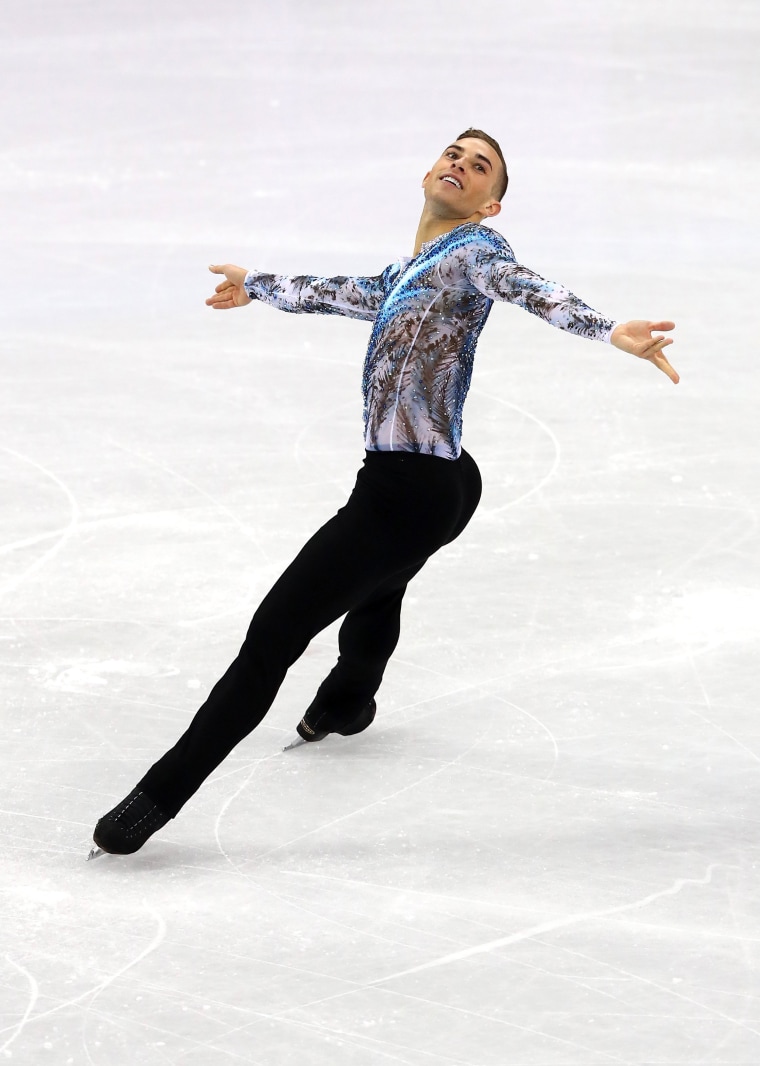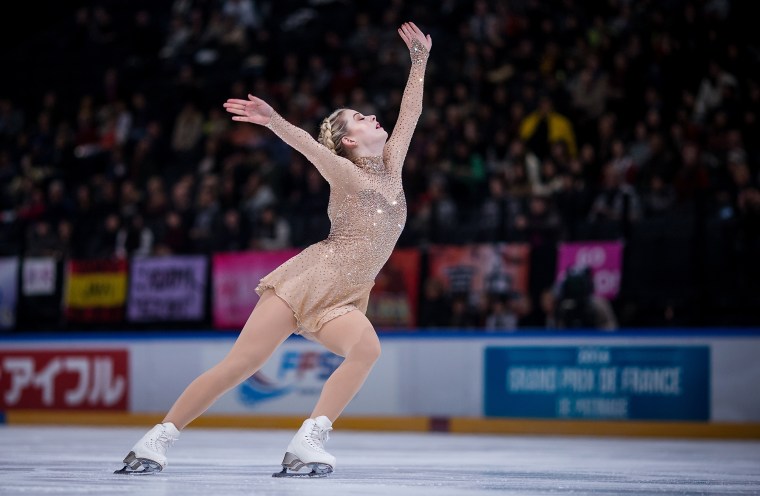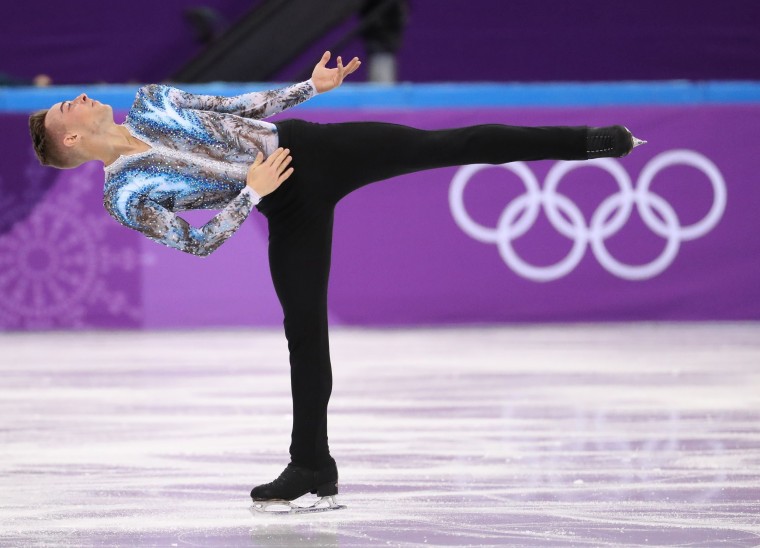Back in 2016, figure skater Adam Rippon survived on just three slices of whole-grain bread per day, washed down with three cups of coffee sweetened with Splenda.
He was in the throes of what appeared to be a dangerous eating disorder. His coach had been urging him for years to lose weight, Rippon said, and the skater thought that if he was just a little thinner, just a little leaner, he would please the judges and land more quadruple jumps.

Rippon, 28, opened up about this difficult time in his life in a recent, candid interview with the New York Times. The skater, who just won a bronze medal in Pyeongchang as part of the figure skating team event, said he used to feel constant pressure to look like his thin, teenage rivals.
“I looked around and saw my competitors, they’re all doing these quads," he told the Times, referring to skating jumps with four revolutions. "And at the same time they’re a head shorter than me, they’re 10 years younger than me and they’re the size of one of my legs."
We often hear female athletes talking about body confidence, but it’s less common to hear a male athlete speak so openly about eating disorders and body image issues. Rippon said that by opening up about his past struggles, he hopes to help others.

Body image issues are nothing new in the world of figure skating. Olympic skater Gracie Gold made headlines last year when she revealed she would not compete in Pyeongchang because she was in treatment for “depression, anxiety and an eating disorder.”
"Definitely athletes in the spotlight — figure skaters, especially — are under pressure to fit a certain mold, and fit a certain body type," Gold told TODAY Style in 2017. "It's really easy to be critical of ourselves in that way ... oh, this person's arms look a little bigger. It's easy to start playing that game. But people have different builds. I think a lot of athletes struggle with that."

Rippon struggled with body image problems for years. When he was 10, his first coach told his mom that he would never be a top figure skater because of his “heavy bottom,” he told the Times. In his teens, his mother confronted him when she noticed he was eating mostly vegetables, and encouraged him to adopt a more well-rounded diet.
He did — for a while. But in 2012, Rippon began training with a new coach who pushed him to lose weight. Rippon eventually adopted his punishing three-slices-of-bread-a-day diet.

A wake-up call finally came last year, when he broke his foot during a warm-up exercise.
“I think I had a stress fracture before I broke my foot,” Rippon told the Times. “I think that was absolutely because I was not getting enough nutrients.”
He began working with a nutritionist, who helped him develop a healthier attitude toward eating. As his diet improved, he began to feel more energy throughout the day.
“I didn’t realize I was so tired all the time,” he said.
Now, Rippon weighs 150 pounds — 10 more than he did in 2016 — and he has a new outlook on his body and his relationship with food. He says he can’t imagine going back to his previous diet.
“It makes me dizzy now to think about it,” he said.